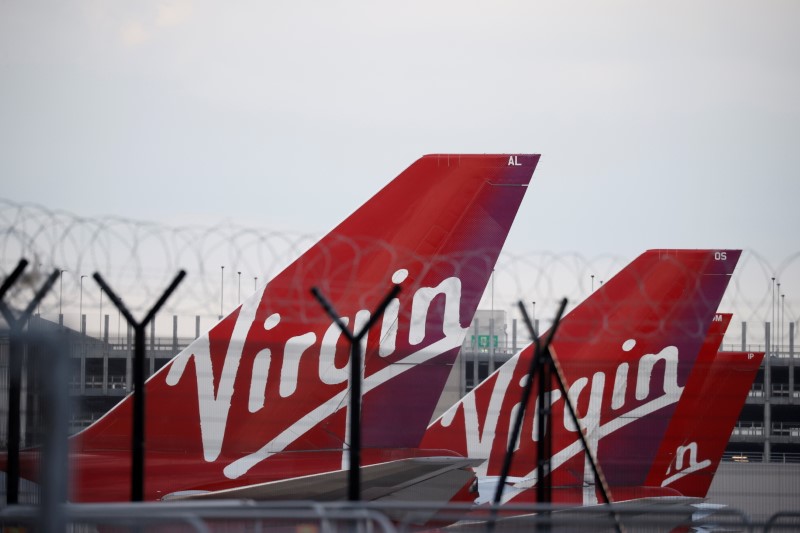LONDON (Reuters) - Virgin Atlantic, the transatlantic airline founded by billionaire Richard Branson, may need a deeper travel recovery to take hold before it can secure investor backing for its plans to float on the London Stock Exchange, analysts said.
Sky News first reported Virgin's plans for an initial public offering on Saturday, saying an autumn announcement was likely. Barclays (LON:BARC) and Citi have been appointed by the airline to handle the float, a source familiar with the situation said.
But analysts said Virgin, which has declined to comment on the IPO plans, may need to wait longer.
"This is a bit of a strange time to be selling airline shares," said Hargreaves Lansdown (LON:HRGV) equity analyst Laura Hoy.
Like most airlines, Virgin has been brought to its knees by the pandemic, with the carrier even more severely affected than rival British Airways due to its focus on Britain-U.S. routes, which still remain partially closed.
Branson owns 51% of Virgin Atlantic through his Virgin Group and Delta Air Lines Inc (NYSE:DAL) owns the rest.
Virgin has survived the pandemic thanks to a 1.5 billion pound ($2.08 billion) rescue between Sept. 2020 and March 2021 and axing around half its staff to cut costs.
The company now wants to bring in new investment to boost its finances as the outlook for travel brightens.
Fully vaccinated American citizens are now able to fly to Britain without the need to quarantine, but most Britons cannot freely travel to the United States.
"The pitch to investors will clearly be the timing of the return to normalised demand and business traffic, with this challenged by concerns over the longevity of government-imposed restrictions," analysts at Goodbody said in a note. "That debate will be central if the listing is launched as early as the autumn."
There is no clarity on when the United States will reverse its ban on UK arrivals, and, globally passenger numbers are not expected to return to pre-pandemic levels until 2023, industry body IATA has said.

Virgin has pointed to a pick-up in demand. The airline has said bookings from New York to London surged by nearly 250% in the week when Britain changed rules for U.S. arrivals, and said it was also helped by Caribbean routes and cargo.
But the group's track record on profitability could cause concerns for investors. The pandemic pushed the company to a 659 million pound loss for 2020, but over the three years before COVID-19 restrictions, it also made a loss, the group's annual reports show.